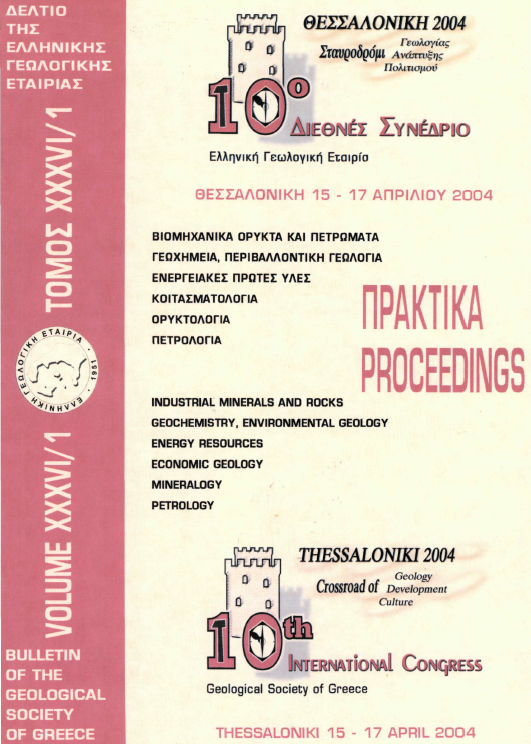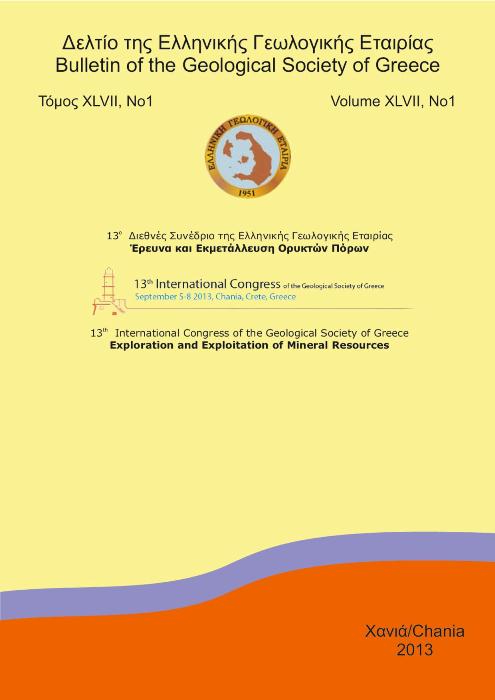National reporting codes for the mineral industry: The case of JORC in Australia.

Περίληψη
Στην παρούσα εργασία παρουσιάζεται ο Κώδικας για την Ανακοίνωση Κοιτασματολογικών Ερευνών, Γεωλογικών και Οικονομικοτεχνικών Απολήψιμων Αποθεμάτων της Αυστραλίας (JORC), όπως αυτός αναθεωρήθηκε το 2012. Συζητούνται συνοπτικά οι Αρχές που διέπουν τον Κώδικα, οι Ορισμοί που πρέπει να υιοθετούνται στις Δημόσιες Ανακοινώσεις, καθώς και η έννοια του Αρμόδιου Μελετητή (Competent Person), με παράλληλη αναφορά σε παραδείγματα απαιτήσεων του Κανονισμού. Παρουσιάζεται επίσης μια συνοπτική σύγκριση με το αντίστοιχο Παν-Ευρωπαϊκό Πρότυπο Ανακοινώσεων (PERC), όπως αυτό δημοσιεύθηκε στις 15 Μαρτίου 2013. Στην Ελλάδα δεν υπάρχει ακόμα σε εφαρμογή Κανονιστικό Πλαίσιο για τη Δημόσια Ανακοίνωση Κοιτασματολογικών Ερευνών και Αποθεμάτων, αν και το πρότυπο PERC πιθανόν να αποτελέσει το Εθνικό Κανονιστικό Πλαίσιο. Σκοπό της εργασίας αποτελεί η έναρξη συζήτησης ανάμεσα στους γεωλόγους και μηχανικούς για τις ευκαιρίες αλλά και τις προκλήσεις, που θα επιφέρει ένα τέτοιο Κανονιστικό Πλαίσιο.
Λεπτομέρειες άρθρου
- Πώς να δημιουργήσετε Αναφορές
-
Kalaitzidis, S. (2013). National reporting codes for the mineral industry: The case of JORC in Australia. Δελτίο της Ελληνικής Γεωλογικής Εταιρείας, 47(4), 1628–1634. https://doi.org/10.12681/bgsg.11004
- Ενότητα
- Κοιτασματολογία, Μεταλλευτική Τεχνολογία και Οικονομική Γεωλογία

Αυτή η εργασία είναι αδειοδοτημένη υπό το CC Αναφορά Δημιουργού – Μη Εμπορική Χρήση 4.0.
Οι συγγραφείς θα πρέπει να είναι σύμφωνοι με τα παρακάτω: Οι συγγραφείς των άρθρων που δημοσιεύονται στο περιοδικό διατηρούν τα δικαιώματα πνευματικής ιδιοκτησίας επί των άρθρων τους, δίνοντας στο περιοδικό το δικαίωμα της πρώτης δημοσίευσης. Άρθρα που δημοσιεύονται στο περιοδικό διατίθενται με άδεια Creative Commons 4.0 Non Commercial και σύμφωνα με την οποία μπορούν να χρησιμοποιούνται ελεύθερα, με αναφορά στο/στη συγγραφέα και στην πρώτη δημοσίευση για μη κερδοσκοπικούς σκοπούς. Οι συγγραφείς μπορούν να: Μοιραστούν — αντιγράψουν και αναδιανέμουν το υλικό με κάθε μέσο και τρόπο, Προσαρμόσουν — αναμείξουν, τροποποιήσουν και δημιουργήσουν πάνω στο υλικό.





